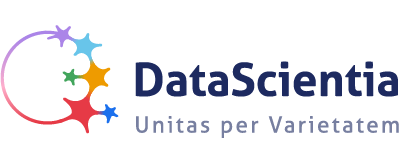COURSE DESCRIPTION
This course will cover the following topics:
the main issues which can be addressed when data and knowledge resources have to be integrated.
a general methodology (iTelos) for knowledge and data analysis, modeling and integration.
an analysis of the state of the art tools and methodologies for data analysis, modeling and integration.
an introduction to ontologies, Extended ER models and linguistic resources.
This is a hands-on, lab and experiment based course. Students will be given a data analysis/modelling/integration problem that they will have to solve, possibly, while taking the class. During the experiment, students will have to apply to the problem the notions introduced in class. The students splitted in teams, where each team will solve an integration problem adopting the methodology taught during the lectures.
INSTRUCTIONS
The Fall 2020 Edition of Knowledge and Data Integration is delivered using the Flipped Classroom methodology1, which requires a bit more work on your side during the course (and also on our side), but should yield considerably better results.
In synthesis, Slides and videos are provided for each lesson, the students can find this material on the current web site under the “Calendar & Material” section. Each lesson scheduled in the calendar has the scope to answer the questions, formulated by the students, regarding the material of the lesson itself and eventually on the previous lessons (in the column named “Content of Lessons”, are reported the lessons considered for the questions). See the section “Q&A” in order to understand how to formulate the questions. Due to that the students have to read the slides and the related video in advance, in order to formulate the questions before the lessons in which they will be clarified. At the end of each phase of the methodology adopted in the KDI course, there is a General Q&A Lesson in which the students can ask questions over all the phase studied. Note that at the end of each phase, the Q&A session will answer to the questions only on the phase just completed.
GitHub
In this edition of KDI course, the students have to work using different features offered by GitHub. One of the objectives of the course is to follow the different phases of the iTelos methodology working on different knowledge and data integration projects. A team composed by a group of students, is assigned to each project, and is in charge to work on it following the methodology in all its phases. Those teams are present also on GitHub, and they have the responsibility to generate and manage a specific project repository. Due to this every student must have a GitHub account, and she/he has to communicate the GitHub user to the teachers, together with other general background information, using the form here linked :
https://docs.google.com/forms/d/e/1FAIpQLSeTsR7CSqcNuweyJ1rJG00sCrHTjaXZRle_LdyCYbtFkj9ZtQ/viewform?usp=sf_link
LEARNING OUTCOMES
The Knowledge and Data Integration course aims to providing motivations, definitions, theorems and techniques for a concrete and effective understanding of what (in the context of computer science) is meant for knowledge and data integration. Providing also, techniques for analyzing and modelling knowledge and data as well as techniques for data and knowledge integration. Stimulating the students to continue their career with higher interest into data and knowledge representation in their own field of expertise, and to produce computer-processable solutions of relevant problems.
The course runs from Sep, 17, 2020 till Dec 11, 2020 with the following schedule, and accessible with the following Zoom link:
CALENDAR AND MATERIAL
- Thursday, 15:30-17:00
- Friday, 14:30-16:00
Course Features
- Lecture 0
- Quiz 0
- Duration 48 hours
- Skill level All levels
- Language English
- Students 273
- Assessments Yes
Requirements
- Data management: basic programming skills in python and/or java/javascript
- Databases modeling: ER modeling, (Ontology modeling if possible, Ontology definition desirable)
- Web languages (mainly RDF and OWL)
- Attitude to teamwork
Target audiences
- The intended target are the students of the master degree in Computer Science of the Department of Computer Science and Information Engineering (DISI) of the University of Trento.



